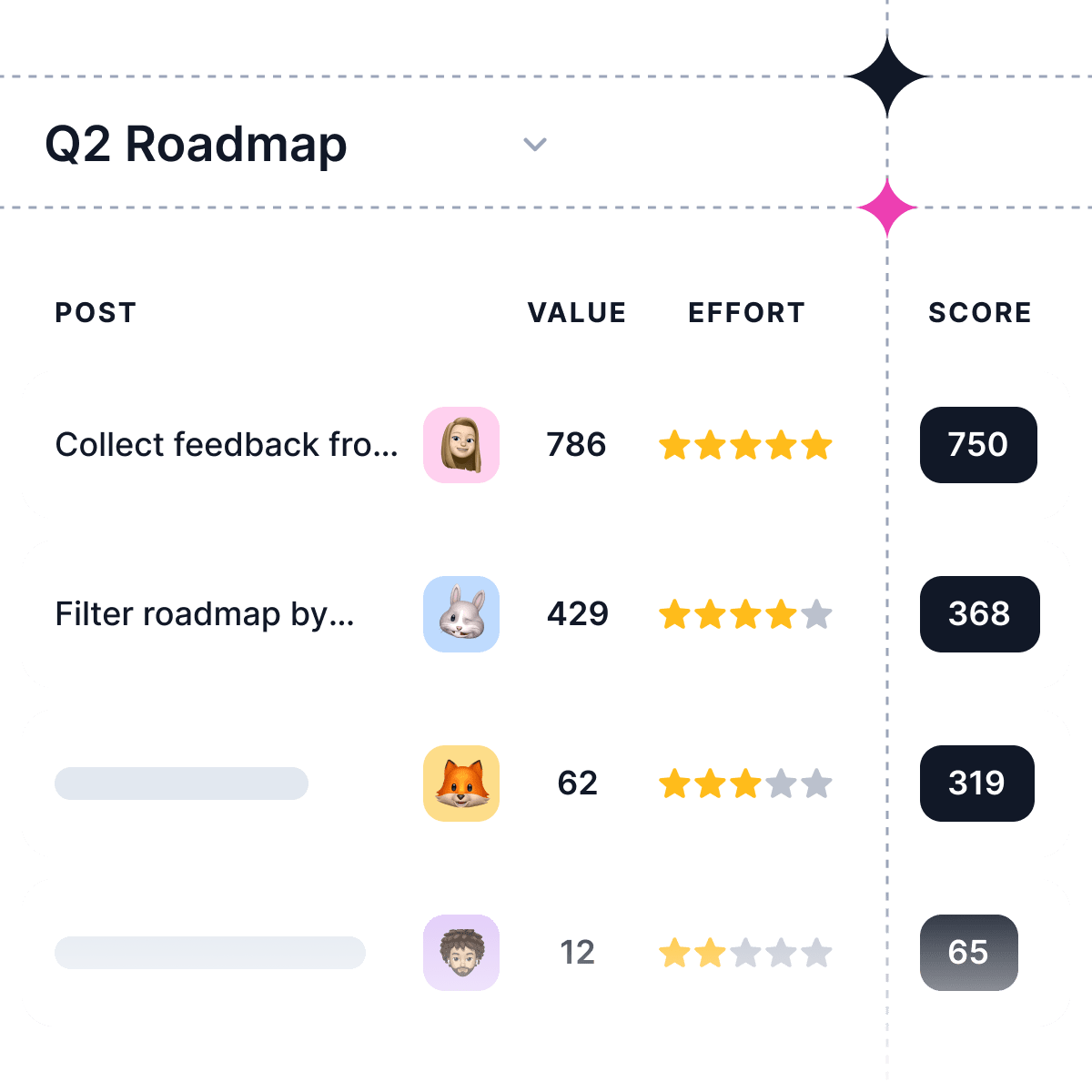Efficient product development and management are crucial to maintaining a competitive edge in today's fast-paced and ever-evolving business landscape. One key discipline that plays a vital role in achieving this is Product Operations, or "ProdOps" for short.
In this comprehensive blog post, we will delve into the concept of Product Operations, its importance in an organization, and how it differs from Product Management. We'll also take a closer look at the essential components of ProdOps and the various responsibilities that fall under its purview.
Through various examples, case studies, and insights into the role of a Product Operations Manager, we'll help you gain a deeper understanding of the significance of ProdOps in driving success and growth in your business. By the end of this post, you'll have a clear grasp of the benefits of implementing Product Operations in your organization and how it can help you stay ahead in a competitive market.
So, buckle up and prepare for an informative and engaging exploration of the world of Product Operations!
What is Product Operations?
Product Operations, often referred to as "ProdOps", is a cross-functional discipline that focuses on streamlining the product development process and optimizing the end-to-end lifecycle of a product. It encompasses various activities such as coordinating between teams, improving communication, tracking progress, and ensuring the timely delivery of high-quality products.
Product Operations Examples
To better understand the role of Product Operations, let's delve into a few examples that highlight its importance in various aspects of product management:
-
Product Launch Management: Product Operations helps coordinate cross-functional teams to ensure a successful product launch. This includes creating a comprehensive launch plan, defining roles and responsibilities, setting deadlines for various tasks, and monitoring progress to ensure timely completion. They also assist in troubleshooting any issues that may arise during the launch process, helping to mitigate risks and ensure a smooth rollout.
-
Process Optimization: Product Operations continuously identifies opportunities to streamline processes, eliminate bottlenecks, and improve efficiency across the entire product lifecycle. This could involve implementing new tools, automating certain tasks, or reorganizing workflows to better align with the overall product strategy. By optimizing processes, Product Operations help drive productivity and ensure that teams can work more effectively.
-
Customer Feedback Management: Product Operations plays a critical role in collecting, analyzing, and incorporating customer feedback into product development. This ensures that products remain user-centric and continue to address customer needs. They work closely with customer support, sales, and marketing teams to gather feedback, identify trends, and prioritize feature requests. This valuable input is then shared with the product development team to inform future product enhancements and updates.
-
Product Training and Documentation: Product Operations develops and maintains product documentation, training materials, and user guides to help users understand and effectively use the product. They collaborate with product managers, designers, and engineers to ensure that all materials are accurate, up-to-date, and easy to understand. In addition, they may organize training sessions or webinars to provide hands-on guidance and support for users, helping to drive product adoption and customer satisfaction.
By examining these examples, it becomes clear that Product Operations plays a vital role in ensuring the overall success and effectiveness of a product team. From launch management to continuous improvement, Product Operations serve as the backbone that supports and enhances the entire product lifecycle.
Why is Product Ops Important?
Product Operations have become increasingly important in today's dynamic business environment for several reasons. Here are some key factors that highlight the significance of Product Ops in an organization:
-
Efficient Collaboration: With multiple departments working together on product development, effective communication and coordination are crucial. Product Ops ensures seamless collaboration between cross-functional teams by establishing clear communication channels, setting expectations, and aligning everyone on shared goals.
-
Faster Time-to-Market: In a competitive landscape, getting products to market quickly is essential for success. Product Ops streamlines processes and eliminates bottlenecks, enabling organizations to develop and launch products more efficiently while maintaining high-quality standards.
-
Customer-Centric Approach: By incorporating customer feedback and insights into product development, Product Ops helps organizations stay responsive to customer needs and market trends. This not only improves customer satisfaction but also drives product innovation and differentiation.
-
Data-Driven Decision Making: Product Ops leverages data from various sources to make informed decisions about product strategies, priorities, and improvements. By measuring performance using key metrics and analyzing data trends, organizations can optimize their efforts for maximum impact.
-
Scalability: As companies grow, managing multiple products or expanding their offerings can become challenging without proper operational support. Product Ops provides the necessary infrastructure to scale effectively by standardizing processes, sharing best practices, and ensuring consistency across the organization.
-
Continuous Improvement: The ability to adapt and improve is vital for long-term success in any industry. Product Ops fosters a culture of continuous improvement by identifying areas of weakness or inefficiency in existing processes and implementing solutions that drive growth.
Product Operations plays a critical role in driving product success through efficient collaboration, faster time-to-market, customer-centricity, data-driven decision-making, scalability, and continuous improvement. By investing in robust Product Operations practices, organizations can better navigate the complexities of product development and management, ultimately delivering exceptional products that delight customers and drive business growth.
What is the role of the product operations manager?
A Product Operations Manager plays a pivotal role in driving the success of a product by overseeing various aspects of its development, launch, and ongoing improvement. They collaborate with cross-functional teams to ensure seamless communication, effective processes, and efficient workflows. Here are some key responsibilities of a Product Operations Manager:
-
Strategic Planning: A Product Operations Manager works closely with product managers and other stakeholders to establish goals, objectives, and priorities for the product. They help define the roadmap and ensure that it aligns with the company's overall strategy while addressing customer needs.
-
Resource Allocation: They are responsible for allocating resources effectively to support product development efforts. This includes identifying skill gaps within the team, optimizing team structures, and ensuring that everyone has access to the necessary tools and information.
-
Performance Measurement: To gauge the effectiveness of various processes, a Product Operations Manager establishes key performance indicators (KPIs) that align with organizational goals. They monitor these metrics regularly to identify areas for improvement and make data-driven decisions to enhance performance.
-
Stakeholder Communication: Facilitating clear communication between all stakeholders is crucial for successful product operations management. A Product Operations Manager acts as a bridge between teams such as engineering, design, marketing, sales, and customer support to ensure alignment on goals and priorities.
-
Risk Management: Identifying potential risks early in the process helps prevent issues later down the line. A Product Operations Manager proactively assesses risks related to product development or launches and implements mitigation strategies accordingly.
-
Continuous Improvement: Emphasizing continuous improvement is essential for maintaining a competitive edge in today's fast-paced market. A Product Operations Manager drives initiatives aimed at refining processes, boosting efficiency, reducing costs, and improving overall product quality.
Product Operations Manager serves as an essential link between various departments involved in product development and management. Their expertise in strategic planning, resource allocation, performance measurement, and risk management ensures that products are developed and launched successfully while continually evolving to meet customer needs.
Product Operations vs. Product Management: What is the difference?
While Product Operations and Product Management may seem similar at first glance, they serve different functions within an organization.
Product Management
Product Management focuses on the strategic aspects of product development, such as:
-
Defining the product vision and roadmap
-
Identifying market opportunities and customer needs
-
Prioritizing features and enhancements
-
Collaborating with engineering teams to develop the product
Product Managers are responsible for guiding the product's direction and ensuring it meets customer needs and business goals.
Product Operations
Product Operations, on the other hand, focuses on the tactical aspects of product development, including:
-
Optimizing processes and workflows
-
Ensuring smooth product delivery and implementation
-
Tracking product performance metrics
-
Managing customer feedback and support
Product Operations teams work closely with Product Managers to ensure that the product vision is successfully executed and delivered.
Key Takeaways
As we've explored throughout this comprehensive guide, Product Operations plays a vital role in the success and growth of a business. By optimizing processes, fostering efficient collaboration, and maintaining a customer-centric approach, ProdOps enables organizations to develop and deliver high-quality products that resonate with their target audience.
Understanding the distinct roles of both Product Management and Product Operations is crucial for organizations aiming to streamline their product development efforts and remain competitive in today's fast-paced market. Investing in robust Product Operations practices not only ensures a well-executed product vision but also lays the foundation for continuous improvement and scalability.
In an ever-changing business landscape, embracing Product Operations can be the key to unlocking your organization's true potential. Empower your teams with the support and structure they need to drive innovation, exceed customer expectations, and achieve long-term success.


